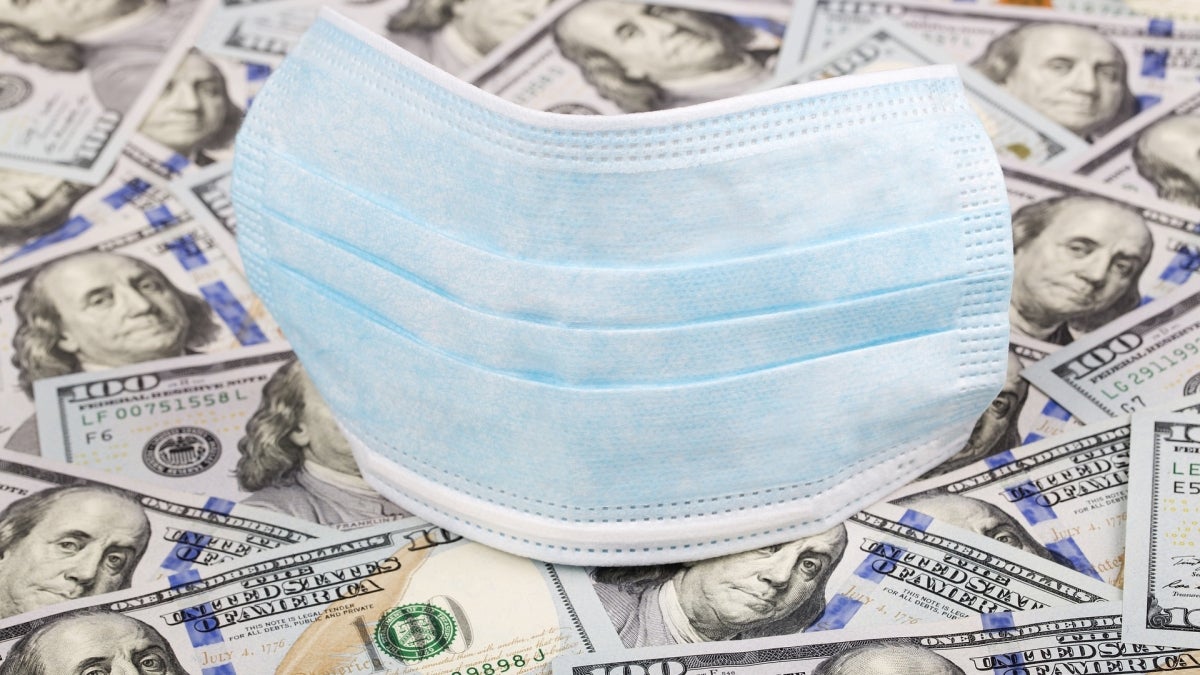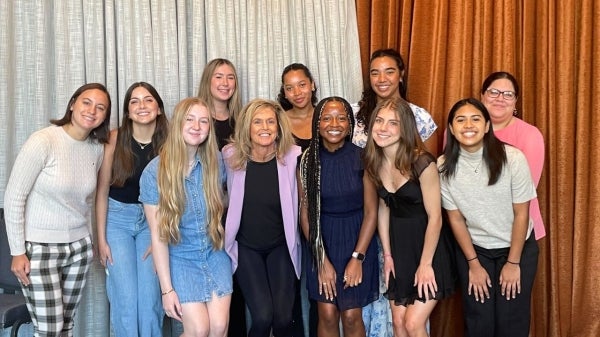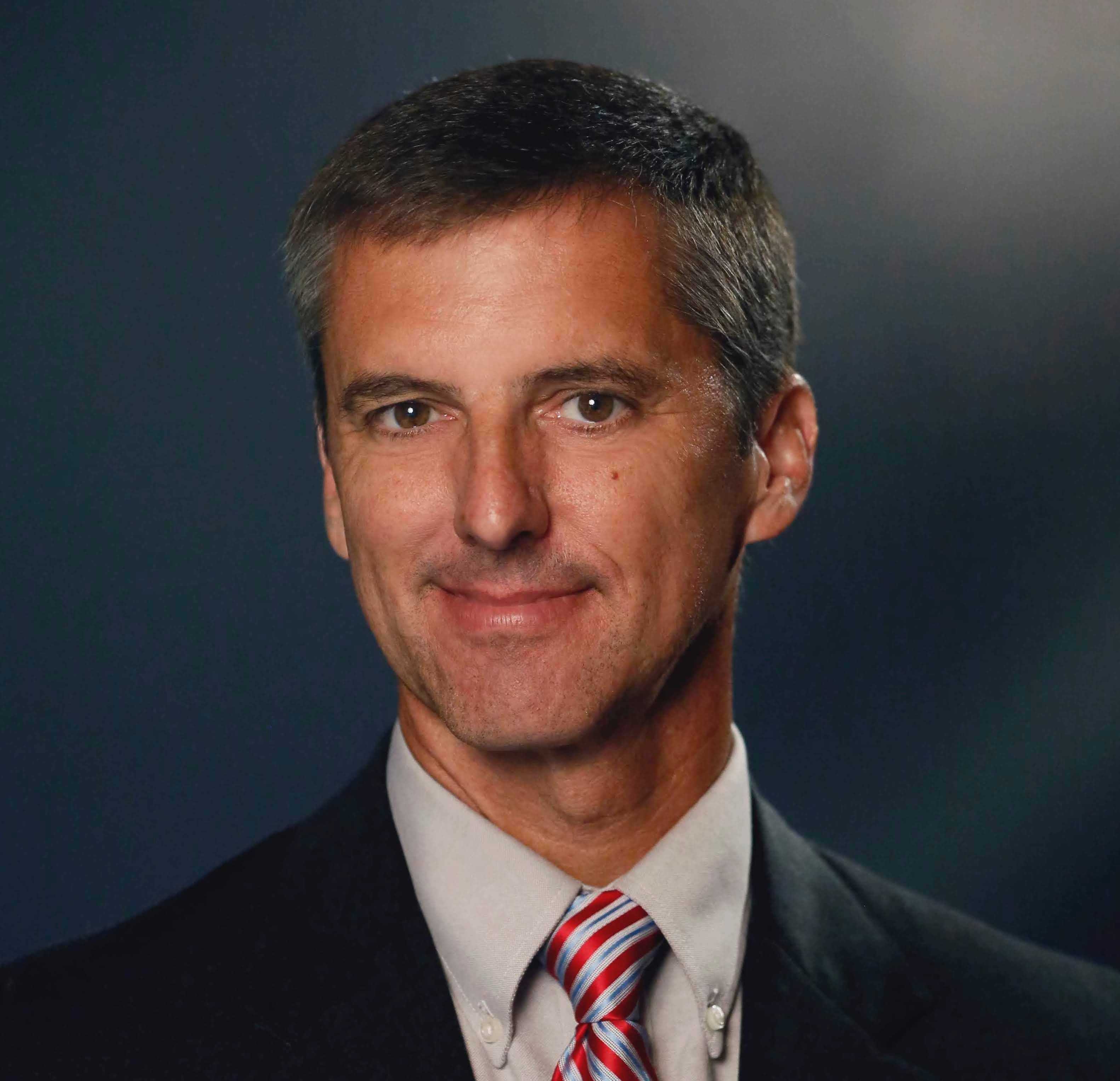ASU expert: Government in COVID-19 'tug of war' between protecting public health, rebuilding economy

Professor James Hodge has not had much spare time since COVID-19 spread globally.
As the director of the Sandra Day O’Connor College of Law’s Center for Public Health Law and Policy at Arizona State University, he’s in big demand these days.
His vast expertise delves into multiple areas: public health law, emergency legal preparedness, global health law, ethics and human rights.
In the last four months, he’s fielded more than 500 inquiries from policymakers, health industry leaders, public health practitioners and nonprofits seeking guidance on public health law and policy issues related to the pandemic.
However, Hodge found time in his busy schedule to speak to ASU Now about several issues regarding the constitutional and legal implications of COVID-19.
James Hodge
Question: Your expertise is in public health law and policy. Given what we know about COVID-19 and its capabilities, were current health laws and rules sufficient to deal with the pandemic or was the response to COVID-19 insufficient?
Answer: The laws we have in place regarding emergency public health authorities to respond to COVID-19 are actually sufficient. Public health emergencies declared across all levels of government authorize significant powers to respond, including unprecedented uses of social distancing measures, extensions of relief funds, and waivers of statutory or regulatory provisions inhibiting response efforts. In many ways, emergency legal powers have proven efficacious, but they can’t supplant failures of political leadership. They cannot displace public concerns about how far we can go with issues like social distancing. As a result, major contentious law and policy issues have arisen.
Q: In regard to public health, what are your thoughts on reopening society?
A: Most Americans have never seen or experienced the impacts of public health interventions at this large of a scale — nor have they ever felt such significant economic impacts over this short a period of time. What I refer to as a “tug of war” between the public health repercussions of COVID-19 as contrasted with the economic impacts reflects substantial controversies nationally and regionally. Reopening strategies pursued by the White House and state, tribal and local governments across the U.S. and here in Arizona must be focused on finding a sustainable balance between protecting the public’s health and rebuilding the U.S. economy.
There is no “easy out” underlying these developments as we societally assess how far can we go with reopening society as COVID-19 cases and deaths rise. Any renewed efforts to close businesses or other entities are going to be met with strong resistance as Americans’ patience with social distancing measures wanes.
Take religious establishments for example. What you see nationally are churches and other religious entities tolerating social distancing with recognition that it's about the health of society and their congregates. However, considerable litigation has also emerged over when and why religious enterprises aren't able to meet when other establishments, like light retail, are reopening. Significant constitutional issues at the heart of the First Amendment — freedom of religious expression, freedom to assemble, freedom of speech — are implicated.
Q: What constitutional concerns relate to stay-at-home orders?
A: Americans are aware of their fundamental freedoms and interests to assemble, to travel, to voice their concerns and engage in active protests, and to pursue their livelihoods. Americans view these things as constitutionally-grounded, but sometimes fail to appreciate that these rights and interests are not absolute. Constitutional interests are always subject to balancing based on compelling governmental interests to protect public health and safety. One’s right to assemble under the First Amendment, for example, is counterbalanced by limitations on assemblies that may be harmful to the public's health.
Nobody has absolute rights to spread disease, yet some perceive government going too far with stay-at-home orders to prevent COVID-19 infections despite only mild impacts on the health of most persons who become infected. That’s understandable, but public health measures are designed to prevent excess morbidity and mortality across societies, and not just as related to specific individuals. It’s a collective goal across the U.S. to limit COVID-19 deaths — public health measures rely on people to do their part, even when the condition may not impact them personally.
Q: What type of litigation themes are private sector employers and employees pursuing in response to COVID-19 efforts across the United States?
A: Significant litigation has arisen related to these issues. Employees in many cases have been terminated due to COVID-19. They've been seeking unemployment benefits for weeks. No government bailout can bring back all these jobs. Employers, especially small businesses, are on the brink of failure. They need their customers back now, which necessitates reopening across a wide swath of industries.
As you can imagine, different types of litigation avenues are pursued by employers and employees. Employees are suing over concerns that their workplaces are not safe to return. They understandably want protections from employers. A new class action lawsuit against McDonald’s in Illinois seeks greater access to personal protective equipment and measures to assure employees avoid heightened risks of infection.
On the employer side considerable litigation surrounds government reopening strategies. Some businesses are fully open; others like theaters, bars, gyms, and others are not. Justifying these distinctions is at the source of many lawsuits across the country. For example, Tesla sued Alameda County in California, claiming its rights to reopen its vehicle and battery manufacturing plants. Alameda County officials backed off and allowed Tesla to commence operations despite continued concerns regarding employee safety.
Q: What role is your center playing in this pandemic locally and nationally?
A: We do so much in relation to providing real-time responses to the pandemic. We’ve worked with ASU partners and colleagues across multiple divisions answering many questions. We operate the Western Region Office of the Network for Public Health Law, funded by the Robert Wood Johnson Foundation. The network provides extensive technical assistance across all types of public health topics, but our region handles most of the emergency legal preparedness efforts nationally. We’ve addressed every imaginable issue related to COVID-19 law and policy concerns through federal and state officials, doctors, hospitals and others. In addition, the center has presented extensively in virtual settings and contributed major scholarship over the last four months on COVID-19 response efforts. All of our efforts are driven by our consummate goal of using law and policy as positive tools for intervention to prevent excess morbidity and mortality related to the pandemic.
More Law, journalism and politics

Cronkite School launches Women Leaders in Sports Media live-learn program
Women in a new sports media program at Arizona State University got a solid game plan from a sports veteran at an Aug. 20 welcome event.“Be humble, be consistent and be a solver,” Charli Turner…

ASU center to host the Pursuits of Education and Excellence Symposium
The Center for the Study of Race and Democracy (CSRD) at Arizona State University is introducing the Pursuits of Education and Excellence Symposium as part of an ongoing initiative to commemorate the…
ASU journalism students dominate NATAS Student Production Award nominations
Students at Arizona State University’s Walter Cronkite School of Journalism and Mass Communication dominated the nominations field of the prestigious Rocky Mountain Southwest Chapter of the National…
